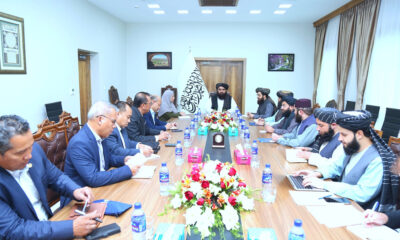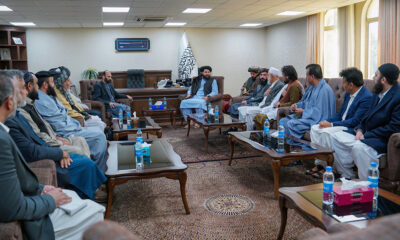Latest News
Daesh, al-Qaeda to establish Islamic Caliphate in Badakhshan
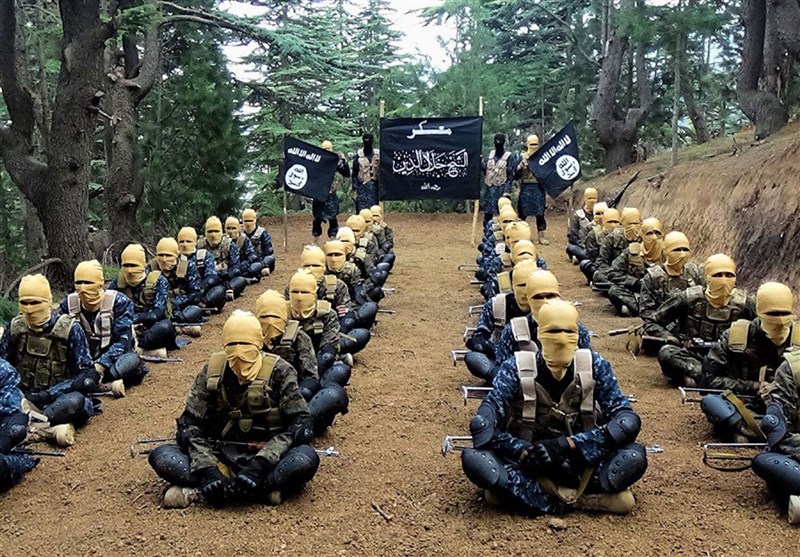
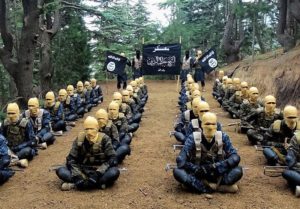 Local officials in Badakhshan say that some 600 families of Daesh and al-Qaeda, who are citizens of some Asian countries, are present in the province and have chosen the Khustak Valley of Jurm district as the center of their activities.
Local officials in Badakhshan say that some 600 families of Daesh and al-Qaeda, who are citizens of some Asian countries, are present in the province and have chosen the Khustak Valley of Jurm district as the center of their activities.
Badakhshan Governor Zakaria Sowda said, “After Daesh was defeated in Helmand and Nangarhar provinces, it is now working with the Al-Qaeda group, all of whom are foreigners, to build a caliphate center in Dara-e Khustak, Jurm district of Badakhshan. If it is not stopped, it will be a great danger after the peace process in Afghanistan and the Middle East.”
Altafullah Alizai, commander of the army’s brigade in Badakhshan, said, “Dara-e Khustak is under the control of Daesh and al-Qaeda for years. The place has open borders with China, Tajikistan, and Pakistan. It has gold mines, exported by the group to foreign countries through the open borders – a good income stream for them.”
Badakhshan military officials say that the Ansarullah network, the eastern Turkestan group, and the Islamic Movement of Uzbekistan are among the groups working directly with the Daesh and al-Qaeda in Jurm, Warduj and Raghistan districts of Badakhshan province.
They add that more than 2,000 Taliban, in addition to these groups, conduct anti-government activities in 22 districts of Badakhshan.
Asadullah Mohammadi, the Police Chief of Badakhshan, said: “In the last week, a number of security forces were killed and others were wounded. The enemy has also suffered casualties. These groups fighting against the Afghan forces are all foreigners.”
Mohammad Ali Ahmadi, First Deputy Chief of Special Operations in the North, said: “Foreign groups in the valley are using advanced weapons against us. Most of these fighters are citizens of Middle Eastern countries. Up to $10,000 has been recovered from the fighters killed in action.”
Meanwhile, residents of the Khustak Valley, Jurm district say that al-Qaeda and Daesh groups, along with their families, have forcibly taken hold of their homes.
“They kicked us out of our homes and located their families. All are black-skinned foreign nationals,” said one resident of Khustak Valley.
Another resident of the valley, said, “There are foreigners who have weapons and ammunition that our government does not have. All of them use dollars. Wherever they take, the people of that locality are kicked out of their homes.”
It is noteworthy that Badakhshan is one of the most insecure provinces in northeastern Afghanistan.
The province has borders with Pakistan, Tajikistan, and China. The Taliban, al-Qaeda, and Daesh have recently taken over Raghistan district and parts of Jurm district too.
Latest News
Malaysian delegation arrives in Kabul for talks with government
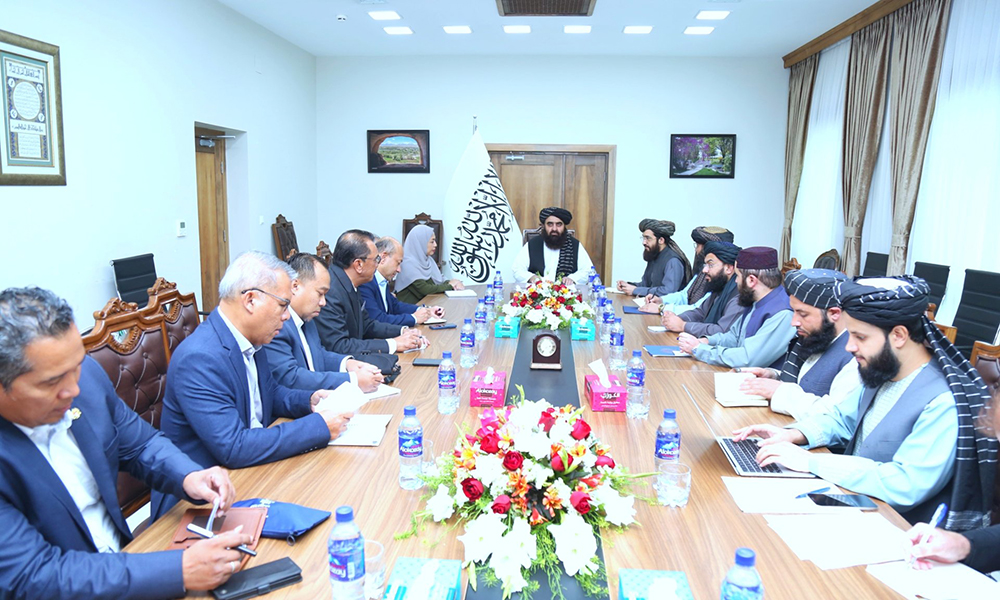
Representatives of Malaysia’s ministries of foreign affairs, defense and interior and advisors of the Malaysian Prime Minister and the Special Representative of Malaysia for Afghanistan arrived in Kabul this week for meetings with a number of high-ranking officials.
The Islamic Emirate’s foreign minister Mawlavi Amir Khan Muttaqi met with the delegation and thanked Malaysia for assistance it has provided over the past few years, including aid for the victims of the deadly Herat earthquake.
Muttaqi said in the meeting that existing diplomatic, religious, cultural and economic relations between the people and governments of Afghanistan and Malaysia were expanding.
“There are business and investment opportunities in various fields,” Muttaqi told the delegation.
“Afghanistan follows a balanced and economy-oriented foreign policy in the political and economic field. Afghanistan’s relations with the international community are expanding and it has established good relations with neighboring and regional countries,” said Muttaqi.
Afghanistan is keen to expand its relations with the countries of Southeast Asia, he added.
Muttaqi further said: “The Afghan government wants the Malaysian government to provide health and education facilities for the 3,000 Afghans currently living in Malaysia.”
At the same time, members of the Malaysian delegation said that the Malaysian government wants to expand relations with Afghanistan in various fields.
The delegation positively evaluated the political situation in Afghanistan and said they hoped a Malaysian trade delegation would visit Afghanistan in the near future.
One delegate, Dato Shazlina said: “Malaysia is determined to organize short-term training programs for Afghan diplomats, training programs in the field of information technology, accounting and development for Afghan civil service employees and in this regard cooperate with Afghanistan in organizing professional programs.”
The political deputy prime minister, Mawlavi Abdul Kabir, also met with the delegation and said the Islamic Emirate has achieved much in the economic and political sectors, and that the world, including the region, has no need to be concerned about Afghanistan.
Latest News
Russia’s special envoy meets with IEA ministers, discusses bilateral issues
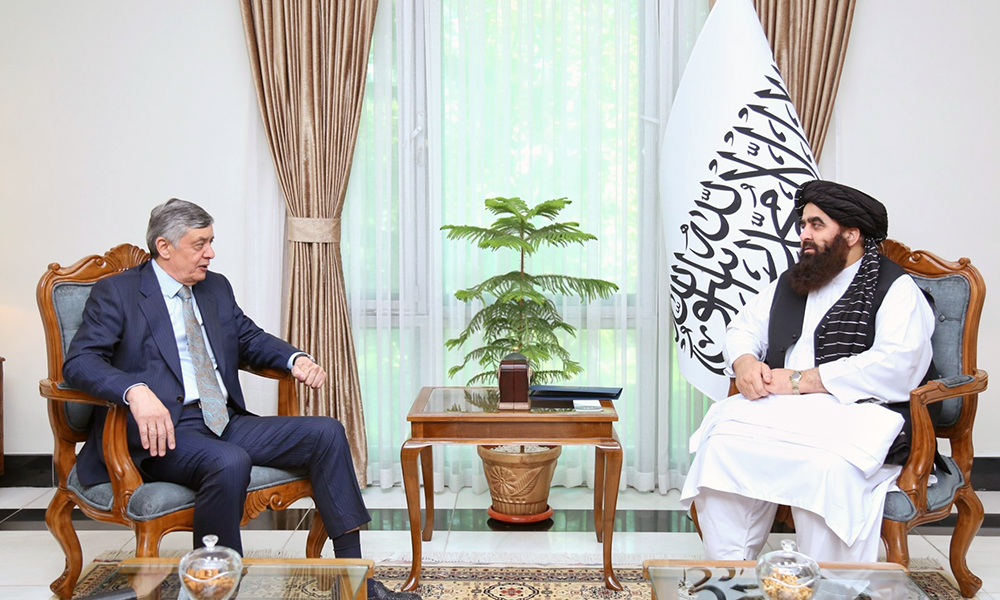
Zamir Kabulov, the Special Representative of the President of the Russian Federation for Afghanistan, who is on a visit to Kabul, has met with the Minister of Foreign Affairs of the Islamic Emirate Mawlavi Amir Khan Muttaqi for talks on political and economic issues between Afghanistan and Russia.
Regional issues were also discussed.
Muttaqi expressed appreciation for Russia’s support at regional and international meetings and emphasized the need to further strengthen political ties and trade relations between the two countries.
He also said that Afghanistan’s relations with countries in the region are flourishing and currently Afghanistan has active embassies in all neighboring countries.
Muttaqi called Afghanistan’s relations with Russia important and said the current ground realities of Afghanistan should be understood and that there is no reason why the United Nations needs to appoint a special representative to deal with Afghanistan.
He said the Afghan government is in talks with the UN over this issue and will make public its position after sufficient clarification has been provided on the agenda and composition of the next UN meeting in Doha.
Kabulov in turn stressed that any meeting held on Afghanistan should be convened with the approval of the Afghan government.
He said it is important for the United Nations to have the Afghan government approve and attend the next Doha meeting.
He said this series of meetings will not yield positive results without the Afghan government being in agreement.
He also said governments of the world should maintain relations with the Afghan government through bilateral mechanisms instead of multilateral contact mechanisms.
Kabulov emphasized that the US should release Afghanistan’s frozen assets and end its unilateral and “illegal” restrictions on the country’s banking system.
He also said Russia and Afghanistan need to improve coordination between them and went on to say he hoped Muttaqi would visit Moscow during the course of this year.
Kabulov also met with acting Minister of Interior Affairs Sirajuddin Haqqani.
This meeting focused on bilateral relations between both countries while political and security issues pertaining to the region were also discussed, the ministry said.
Latest News
Afghans in Europe Union members meet with ministers of defense, mining
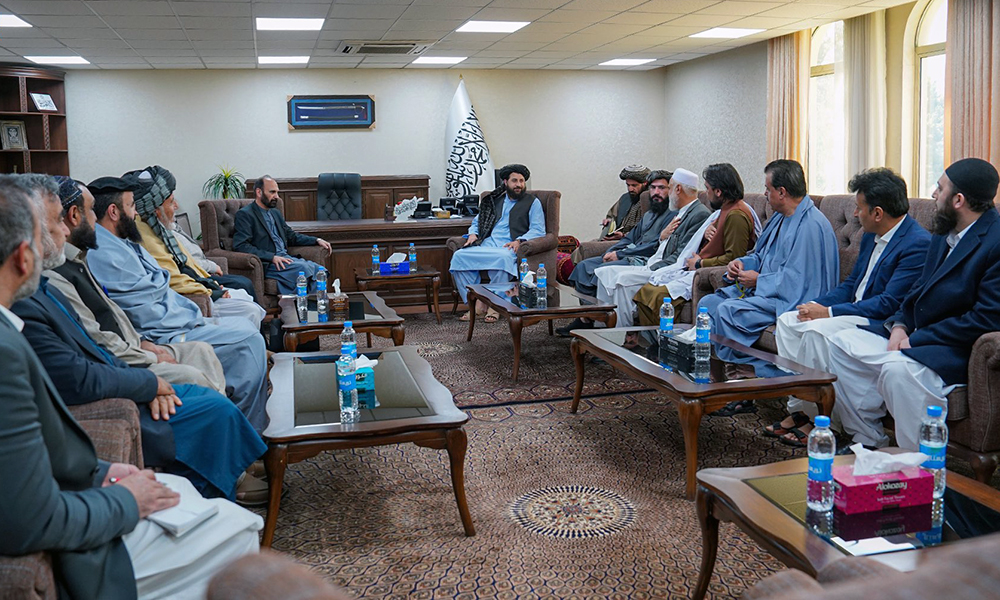
Representatives of the Union of Afghans living in Europe on Tuesday met with the ministers of defense and mining for talks on several issues.
Acting Minister of National Defense Mohammad Yaqoub Mujahid said in a meeting with union delegates that the current security situation in the country has provided an opportunity for everyone to participate in the progress of Afghanistan.
Mujahid added that there were still some problems in certain areas but that these will be removed.
In this meeting, Mujahid called Afghanistan the common home of all Afghans and said the problems in the country will be solved soon.
“The problems that exist in some issues will be solved soon; but there was nothing more than the security that has been revealed in this land today with the help of Allah and with the sacrifices of our people,” he was quoted in a statement as saying.
According to the statement, a number of Afghans, who only moved to the country after the Islamic Emirate’s takeover, expressed their satisfaction with the current situation in the country.
In addition, Shahabuddin Delawar, acting Minister of Mines and Petroleum, also met with union representatives and asked Afghans living abroad to return to Afghanistan and contribute to the country’s progress.
In this meeting, the Afghans living in Europe asked Delawar to provide better facilities to Afghans who want to invest in the country. The Ministry of Mines and Petroleum says that Delawar also asked the visiting delegation to return to Afghanistan and contribute to the country’s development.
Earlier, in a meeting with a number of other officials of the Islamic Emirate, including the political deputy of the Prime Minister and the Acting Minister of Foreign Affairs, this delegation emphasized the need to strengthen the system and provide work and education to Afghan girls and women.
-

 Sport5 days ago
Sport5 days agoRashid Khan threatens BBL pullout after Australia postpones Afghanistan T20I series
-

 Sport4 days ago
Sport4 days agoAfghanistan Champions League kicks off with grand opening ceremony
-

 Latest News3 days ago
Latest News3 days agoPakistan’s frontiers minister stresses ‘dignified’ return of Afghan refugees
-

 Regional4 days ago
Regional4 days agoIran’s foreign minister downplays drone attack, says Tehran investigating
-

 Latest News5 days ago
Latest News5 days agoTen people killed by floods in Helmand
-

 Business4 days ago
Business4 days agoAfghanistan’s economic prospects are bleak: World Bank
-

 Latest News4 days ago
Latest News4 days agoMore than 800 Afghan refugees deported from Pakistan in two days
-

 Regional2 days ago
Regional2 days agoIranian president lands in Pakistan for three-day visit to mend ties


